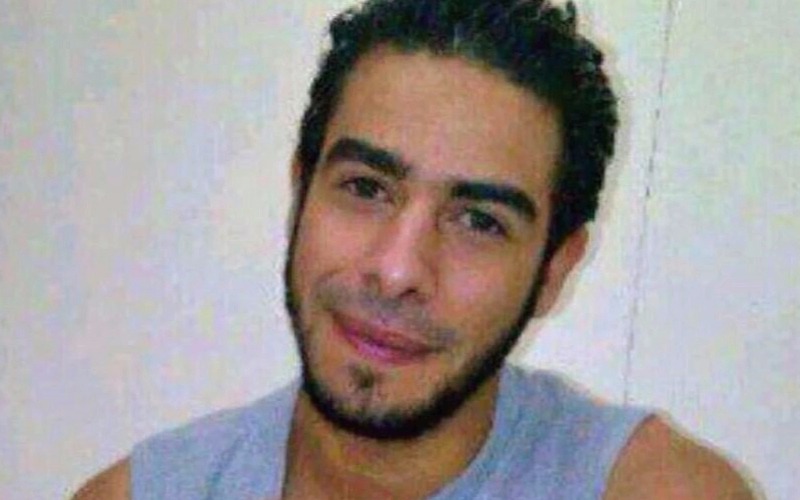Elyas AlMulla is a Bahraini citizen who was arrested, tortured to extract a confession, and sentenced to 15 years in prison. AlMulla remains in Jau Prison despite severe health problems caused by cancer and exacerbated by prison authorities’ denial of consistent access to necessary medical care.
Security forces arrested AlMulla from his home on 11 May 2012, without a warrant. Officers at the Ministry of Interior’s Criminal Investigations Directorate tortured him for a week, including kicking, sleep deprivation, forced standing, deprivation of food and water, and threats to lock him in a pitch-black cell. The officers also prevented AlMulla from praying. The torture and ill treatment continued until AlMulla agreed to sign a confession. He was convicted and sentenced to 15 years in Jau Prison.
In August 2015, AlMulla began vomiting blood, and he was transferred to the Bahrain Defense Force Royal Medical Services Hospital. Prison authorities did not inform his family, but another inmate informed them of his transfer and poor health, and his family went to visit him at the hospital five days later. However, the authorities refused entry to the family for a further five days, when his mother was ultimately permitted a one-hour visit. The family spoke to a doctor, who informed them that AlMulla had undergone surgery to remove a malignant tumor, and that he would need to receive annual check-ups to ensure that the cancer had not returned. The doctor also informed his family that AlMulla would be transferred back to Jau in two days, despite his medical condition.
AlMulla called his family five days later and informed them that he was still vomiting blood and had been taken to the infirmary. His mother made multiple calls to the prison and the hospital, but received no further information. Two days later, AlMulla called and told her that he had been diagnosed with intestinal stenosis, an abnormal narrowing of his intestinal tract. His mother tried repeatedly to obtain his medical reports, which she did not receive until six weeks after her initial request. She discovered that AlMulla had been diagnosed with stage three colon cancer with partial diffusion into the lymph system, marking the penultimate stage before metastasis. He had been prescribed eight rounds of chemotherapy, which did not begin until October 2015. Once the treatment began, it was interrupted often; prison authorities did not always transfer him on time, or his treatment would be postponed because the guards failed to bring his required medical file. Throughout his chemotherapy in 2015 and 2016, prison authorities shackled AlMulla in the car on the way to the hospital, and shackled him to the bed during treatment. Doctors ordered him to stop chemotherapy due to his weakened immune system.
In July 2017, AlMulla began to exhibit other symptoms of poor health, including abdominal pain and swelling, joint pain, nausea, dizziness, and diarrhea. He believes that these symptoms are due to his cancer returning. On 20 November 2017, he was taken to the prison clinic to address these symptoms. However, because his medical file was not in the clinic at the time, he was not seen by a physician. At the time of writing, he has still not been examined.
Bahrain’s actions against AlMulla violate international law, including the Convention Against Torture (CAT), the International Covenant on Civil and Political Rights (ICCPR), and the International Covenant on Economic, Social and Cultural Rights (ICESCR). Bahrain is a party to each of these treaties. The use of a confession extracted through torture to convict AlMulla is in violation of the international prohibitions on torture and arbitrary detention (CAT and ICCPR Articles 7 and 9). The prison authorities’ failure to provide consistent and reliable medical care is also in violation of the right of everyone to the enjoyment of the highest attainable standard of physical and mental health (ICESCR Article 12).
ADHRB calls upon Bahrain to uphold its human rights obligations by annulling AlMulla’s conviction and ensuring that any subsequent trial is consistent with due process and fair trial rights. We additionally urge the authorities to investigate claims of torture and ill treatment by police and prison officials and to hold those officials accountable. ADHRB also urges the government to ensure that AlMulla receives necessary and life-saving medical care, and to keep his family informed on the status of his medical condition.





